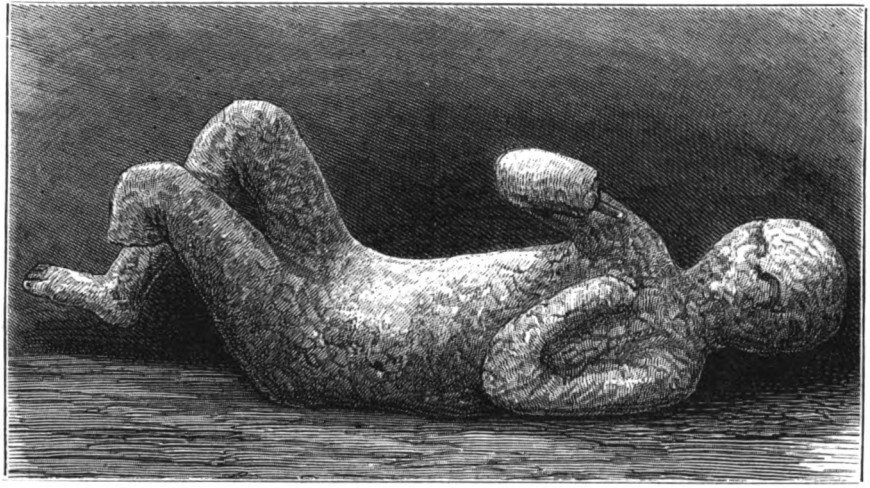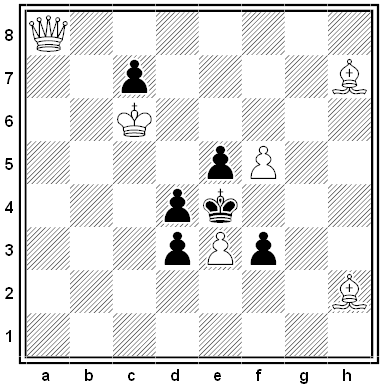
We now and then hear of some interesting discovery, but seldom of one more affecting to the sense of humanity than that which was made three weeks ago. In one of the narrow streets [of Pompeii] were found signs of human remains in the dried mud lying on the top of the strata of lapilli reaching to the second floor of the houses; and when the usual process of pouring plaster of Paris into the hollow left by the impression of a body had been accomplished, there came to light the form of a little boy, seemingly about twelve years old. Within the house, opposite to the second floor window of which this infantile form lay, were found a gold bracelet and the skeleton of a woman, the arms stretched towards the child. The plaster form of this woman could not be obtained, the impression being too much destroyed. It is evident that the mother, when the fiery mass descended, had put her little boy out of the window in the hope of saving him, and he must, no doubt have been overwhelmed. The position of the left leg, indeed, seems to show that the child had lost one foot, or that it had been hurt of lamed, which may have been done by the burning substance that quickly overspread the floors of the house and the pavement on the street. Some think the boy was actually being raised and carried in his mother’s arms, at the moment when both finally perished. His left arm is close to the chest, as though wrapped in his toga or mantle, while the right arm (which has been broken off above the wrist, in digging out the figure) was somewhat uplifted. There is a protuberance on the face, which seems to have been caused by his putting a finger to his mouth, to clear off the suffocating matter that pressed upon him in his last moments of life.
— Illustrated London News, March 11, 1882, via Eugene J. Dwyer, Pompeii’s Living Statues, 2010





